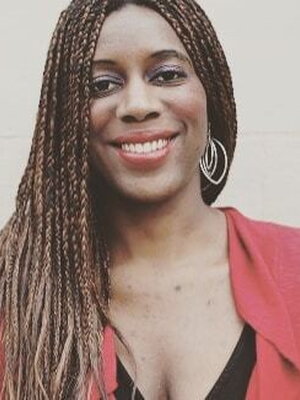
Suzie Telep is an Assistant Professor of Anthropology and a faculty affiliate of the EU Center.
What is the focus of your current research?
Overall, my research focuses on language, race, and body style in cultural productions such as music, social media, and fashion among Francophone Cameroonians in Paris, France, and Duala, Cameroon. My current book project, provisionally entitled "“Speaking like a White Person”: Language, Race, and the Black Body among Cameroonian Activists in Paris," explores the co-articulation of language and the body in the social construction of Blackness in postcolonial France through the practice of "whitisation" (a Cameroonian French word for "whitening") among Black Cameroonian immigrants living in Paris. "Whitiser" in Cameroon means “speaking like a White person,” i.e. imitating the ways of speaking and behaving of White people, and particularly of French White people due to the colonial history between France and Cameroon. In my book, I address the following questions: how, by whitening, do these Black immigrants from a former French colony strive to emancipate themselves from the race relations that weigh upon them in contemporary France? How are their racial identifications structured by assimilationist, universalist ideologies in France and by postcolonial power relations between France and Cameroon? And from a macro-political perspective, how are these Black anti-racist activists trying to extricate Africa from its subordinate position within the global economy of racial capitalism? By exploring the ambivalences of Black francophone immigrants toward Whiteness, my book aims to shed light on the possibilities and limitations of Black Africans’ political emancipation from structural racism in contemporary France.
Besides this book manuscript, I started working on a new research project that focuses on the role of language and music in the construction of urban youth identities in postcolonial Cameroon and its diaspora in France, from an intersectional perspective crossing race, gender, and class. This practice-based research feeds on my experience as a jazz singer, voice teacher, and performer. The first years of this research project (2021-2023) were funded by the European Commission's Marie Sklodowska-Curie Fellowship.
What classes do you teach?
ANTH 515 - Black France: Race in the French Republic
ANTH 425 - Anthropology of Education
ANTH 352 - Language and Gender
ANTH 425 - Language and Global Youth Cultures
Do you have any recent awards that you would like to highlight?
Teaching Award: I have been selected on the list of “Teachers Ranked as Excellent by their Students with Outstanding evaluations” for the class Anthropology of Education (ANTH 425), Fall 2023:
https://citl.illinois.edu/docs/default-source/teachers-ranked-as-excell…
What is a book (academic or non-academic, in or outside your field) that you think should be more widely read?
"Black is the Journey, Africana the Name," by Maboula Soumahoro. A wonderful examination of race and Black identity through an autobiographical narrative by a Black female faculty who is an assistant professor of English at the University of Tours, France. In this book, Soumahoro interrogates what it means to be a Black African woman in postcolonial France.
Is there any additional information you'd like to share?
Besides my academic career, I am also a jazz singer, songwriter and performer. This creative life feeds my research and teaching a lot, and it gives me a fine balance between intellectual and artistic creation. You can watch some videos of my live performances on my YouTube channel: https://www.youtube.com/channel/UCF9lAOOhi5RvzE8G4-jsUAw